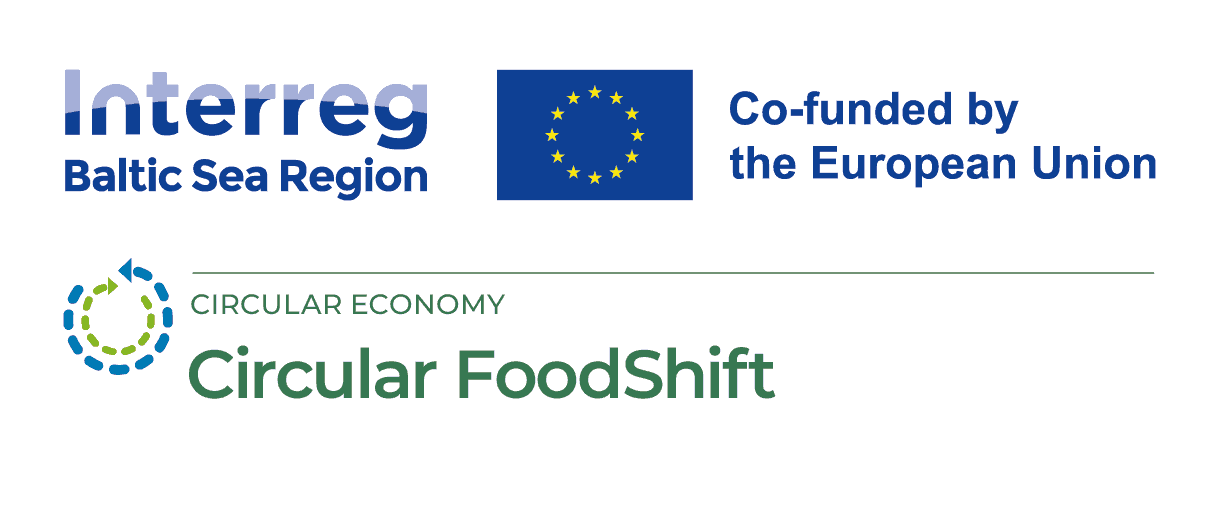
Data collection for the framework "Setting the table for a Circular FoodShift"
08 November 2024
Background and goals
Seinäjoki University of Applied Sciences (SeAMK´s) aim in this project is to understand the local food system in three contents (Vilnius, Latgale and Tartu) and to research and recognize opportunities and obstacles related to the green transition and circular economy. Based on the research results SeAMK and project partners will develop the framework “Setting the table for a Circular FoodShift” and disseminate the framework and project results.
The methods of the project
SeAMK has collected research data for the Circular FoodShift -project between May and October 2024. SeAMK has used four different methods in this research. The methods have been literature review, online ethnography, interviews and focus group workshops.
The target groups that participated in the research come from the regions of Vilnius, Latgale and Tartu. The target groups and interviewees involved in the research are engaged in sustainable gastronomy and school food programs, or are small farmers, food producers or food entrepreneurs.
Literature review. The literature review of the project aims to analyse the food system in the Baltic countries and the current situation of the local food system in the Vilnius, Latgale and Tartu regions. The literature review examines the differences in the food systems of the regions and how those could be developed.
Interviews
Sixteen (16) local food system experts were interviewed for the project. Interviews were kept in the Teams and those were recorded. The research questions were sent in advance to interviewees. The interviews aimed to find out the target group´s view on sustainable development, green transition and circular economy. The interviews aimed to determine whether target groups have implemented or plan to implement actions related to sustainable development, the green transition, or the circular economy, and what are the actions. In addition, companies were asked whether they had received sufficient support at the EU level and from regional actors.
The interviews included exact questions for the following categories:
- products of the company
- local cooperation
- food system
- economic model
- circular economy
- reducing food waste
- companies’ way of communicating with customers
The interviews were summarized and analysed. The results will be utilized in the development of the “Setting the table for a Circular FoodShift” framework.
Online ethnography
Online ethnography was done for 22 different companies. This study focused only on social media publications related to sustainable development and the circular economy. The purpose of online ethnography was to find out from companies’ websites and social media channels how they promote, communicate and share their knowledge about sustainable development and the circular economy with their customers and followers.
Online ethnography was used to find out the following things from the previous year:
- day of publication
- number of followers
- how many likes, shares and comments each publication have got
- do publications include sustainable management or circular economy
- type of the publication (does it include texts, pictures, videos)
- the subject of the publication
Research results of online ethnography were moved to Excel. Based on the data, it will be determined which themes related to sustainable development and the circular economy the companies communicate about and how often these themes are repeated.
Focus group workshops
SeAMK and Sustainable Gastro (project partner) have organized two focus group workshops, whose theme has been dynamic food procurements. The participants have been public procurement experts, public actors from municipalities, small farmers, small food producers and representatives of public food services. The theme of the focus group workshop in Ukmergė was “How to involve farmers?” and the method used was Lotus flower. The second online workshop was focused on the Dynamic Purchasing System (DPS). Summaries of the workshops have been made, and the results will be used in the development of the framework “Setting the table for a Circular FoodShift.”
Reporting and analysis of the research data
The framework “Setting the table for a Circular FoodShift” will be developed based on data collected using different methods. As a result of the project, a framework and two peer-reviewed articles will be published in 2025.





